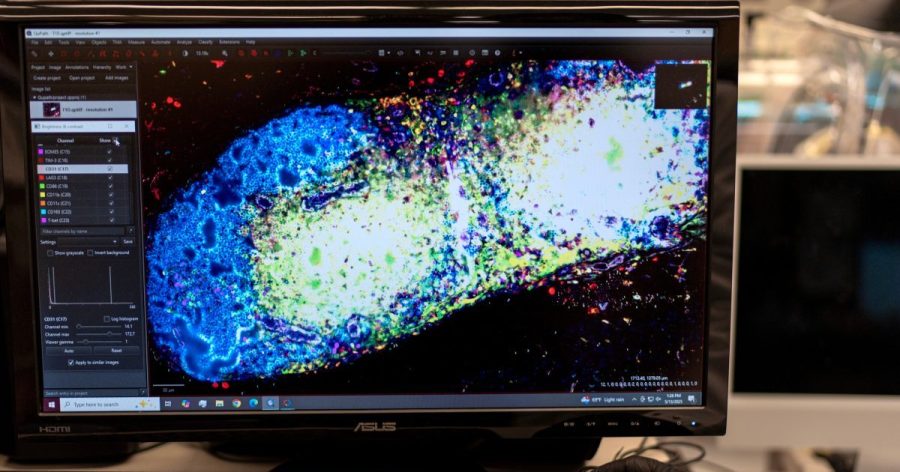Health
Scientists Pioneer Innovative Treatment for Autoimmune Diseases

Researchers are undertaking a groundbreaking approach to treat autoimmune diseases, including rheumatoid arthritis, multiple sclerosis, and lupus. This new strategy aims to address the underlying causes of these conditions rather than merely alleviating symptoms.
The initiative, led by a team at the University of California, San Francisco, has garnered significant attention for its innovative methods. The project received funding of $2 million from the National Institutes of Health to explore therapies that target immune system function directly.
Transformative Strategies in Autoimmune Research
Typically, treatments for autoimmune diseases involve long-term medication to manage symptoms. However, this research takes a different route by focusing on reprogramming immune cells. Dr. Jennifer Smith, the lead researcher, explains that the goal is to retrain the immune system to respond appropriately to the body’s own tissues.
In preliminary studies, scientists have observed promising results in animal models, where the new therapies significantly reduced disease severity and improved overall health. The approach involves engineering immune cells to enhance their ability to recognize and eliminate harmful agents without attacking the body’s own cells.
This innovative method could potentially shift the landscape of treatment for millions of patients suffering from autoimmune diseases. Currently, around 50 million people are affected by these conditions in the United States alone.
Next Steps and Outlook
As the research progresses, the team plans to initiate clinical trials in 2024. These trials will be crucial in assessing the safety and efficacy of the new treatment in human subjects. The innovative therapy could provide a much-needed alternative for patients who have limited options and often experience debilitating side effects from existing medications.
The implications of this research extend beyond individual treatment. If successful, it could pave the way for similar strategies targeting other autoimmune conditions, enhancing the quality of life for many.
The scientific community is closely monitoring these developments, and the enthusiasm surrounding this research indicates a potential turning point in the management of autoimmune diseases. Dr. Smith emphasizes that while challenges remain, the promise of a more effective treatment paradigm is on the horizon, offering hope to those affected by these challenging conditions.
-

 Science1 month ago
Science1 month agoIROS 2025 to Showcase Cutting-Edge Robotics Innovations in China
-

 Lifestyle1 month ago
Lifestyle1 month agoStone Island’s Logo Worn by Extremists Sparks Brand Dilemma
-

 Health1 month ago
Health1 month agoStartup Liberate Bio Secures $31 Million for Next-Gen Therapies
-

 Science2 weeks ago
Science2 weeks agoUniversity of Hawaiʻi at Mānoa Joins $25.6M AI Initiative for Disaster Monitoring
-

 World1 month ago
World1 month agoBravo Company Veterans Honored with Bronze Medals After 56 Years
-

 Lifestyle1 month ago
Lifestyle1 month agoMary Morgan Jackson Crowned Little Miss National Peanut Festival 2025
-

 Health1 month ago
Health1 month agoTop Hyaluronic Acid Serums for Radiant Skin in 2025
-

 Politics1 month ago
Politics1 month agoJudge Considers Dismissal of Chelsea Housing Case Citing AI Flaws
-

 Science1 month ago
Science1 month agoArizona State University Transforms Programming Education Approach
-

 Business1 month ago
Business1 month agoTruist Financial Increases Stake in Global X Variable Rate ETF
-

 Sports1 month ago
Sports1 month agoYamamoto’s Mastery Leads Dodgers to 5-1 Victory in NLCS Game 2
-

 Top Stories1 month ago
Top Stories1 month agoIndonesia Suspends 27,000 Bank Accounts in Online Gambling Crackdown









